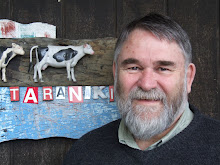Creativity loves a crisis. Especially at times of crisis we need creativity. Indeed some of the most creative solutions in human endeavour have come about because of a crisis.
But what do we mean exactly, by ‘Creativity’? There is artistic creativity: the visual arts, music, literature, design, architecture, film and video, TV and radio, crafts and advertising, for example. These are the kinds of artistic creativity on which the concept of the ‘creative industries’ is based. Examples of artistic creativity are numerous and obvious: the art of Leonardo da Vinci and Michelangelo, the literature of Shakespeare, the music of Mozart. More recently there have been modern classics in design, architecture and cinema.
But there is also a more general kind of creativity, which we might call ‘ingenuity’, ‘innovation’, ‘invention’, ‘lateral thinking’, or simply ‘problem solving’. We can find this kind of creativity in all fields of human activity: for example in science, education, politics, finance, engineering, agriculture, health care and warfare.
More here: http://blog.davidparrish.com/files/a-creativity-i-creativity.-david-parrish.pdf


